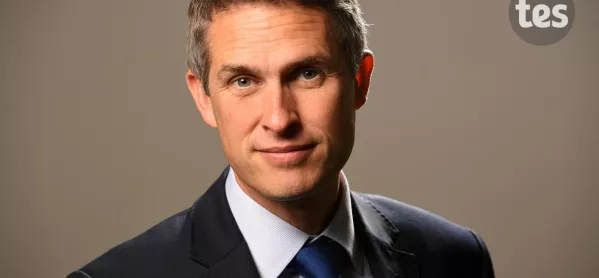Williamson ‘struggles to pinpoint’ catch-up cash reach

The education secretary has “struggled to pinpont” the total number of pupils that will benefit from the newly expanded Covid catch-up fund.
This morning the government announced a £705 million catch-up package to help get pupils back on track after the Covid disruption to education, including cash earmarked for a “recovery premium”, summer schools, more tutoring and early language support. But £300 million of this is money the prime minister had already announced last month.
Now Gavin Williamson has failed to say how many pupils will benefit from the investment.
Covid catch-up plan: Summer schools and more tutoring
Exclusive: Covid catch-up needs more cash, says Collins
Coronavirus: Catch-up tsar wants teachers to increase learning time
Asked this morning how many children will be reached by the catch-up funding this year, and specifically the tutoring cash, Mr Williamson said he expected to see a “considerable expansion” to the 120,000 pupils helped to date. But he was unable to specify further.
Mr Williamson told Radio 4‘s Today programme: “Well, the way that we’ve done it, we’ve created a number of different sort of routes to help children.”
‘Centralised meddling’ in Covid catch-up
Pressed on how many children will be reached by the extended National Tutoring Programme, in light of comments made by social mobility professor Lee Elliot-Major that a “decade” of catch-up will be necessary, Mr Williamson said: “So already we’re at the figure of 120,000. By putting this extra money to be made available, we see a considerable expansion to that number, but we do recognise that just pure tutoring isn’t going to be the answer.
“And that’s why we put extra resources and extra money being available to schools, in order for schools to look at how they can do that extra work. So £200 million being made available for secondary schools who want to lay on activities during the summer, including extra academic work as well as other activities such as sporting activities as well.
“But also the extra money that will be going directly to schools, for them to be able to target at those pupils who need the most help.”
Asked how close the fund will get to reaching the 1.4 million children on free school meals, Mr Williamson said: “So, part of the issue is that children from many different backgrounds will have suffered as a consequence of Covid, in terms of needing to catch up, and there’s a lot of evidence to point out that it’s children who probably struggled at school before the pandemic who have struggled most during the pandemic and deprivation isn’t the sole and only indicator on that.”
Also speaking to the Today programme this morning, Professor Elliot-Major, from the University of Exeter, said the latest statistics show that catch-up tutoring is helping “tens of thousands of pupils so far”.
He said this is “great from a standing start”. However, “what we really should be aiming to help is hundreds of thousands of children”.
“In my view, this tutoring programme should become a fixed bit of the education system,” he said.
“And then children will be offered tutoring as, remember, many middle-class children have already. So, in many ways, this is about levelling the playing field. But I do think you need both directed, targeted programmes like the National Tutoring Programme, alongside extra money for teachers to use at their discretion.”
Geoff Barton, general secretary of the Association of School and College Leaders, said: “The government has over-complicated the delivery of catch-up support so it is not surprising that the education secretary has clearly struggled to pinpoint how many children these new plans will help.
“We have repeatedly said that the government should do the simple and most effective thing, which is to provide all the money directly to schools, colleges and early years providers. The arithmetic is then pretty straightforward.
“The government’s insistence in dividing money into pots for the National Tutoring Programme and summer school provision smacks far too much of centralised meddling.”
You need a Tes subscription to read this article
Subscribe now to read this article and get other subscriber-only content:
- Unlimited access to all Tes magazine content
- Exclusive subscriber-only stories
- Award-winning email newsletters
Already a subscriber? Log in
You need a subscription to read this article
Subscribe now to read this article and get other subscriber-only content, including:
- Unlimited access to all Tes magazine content
- Exclusive subscriber-only stories
- Award-winning email newsletters



